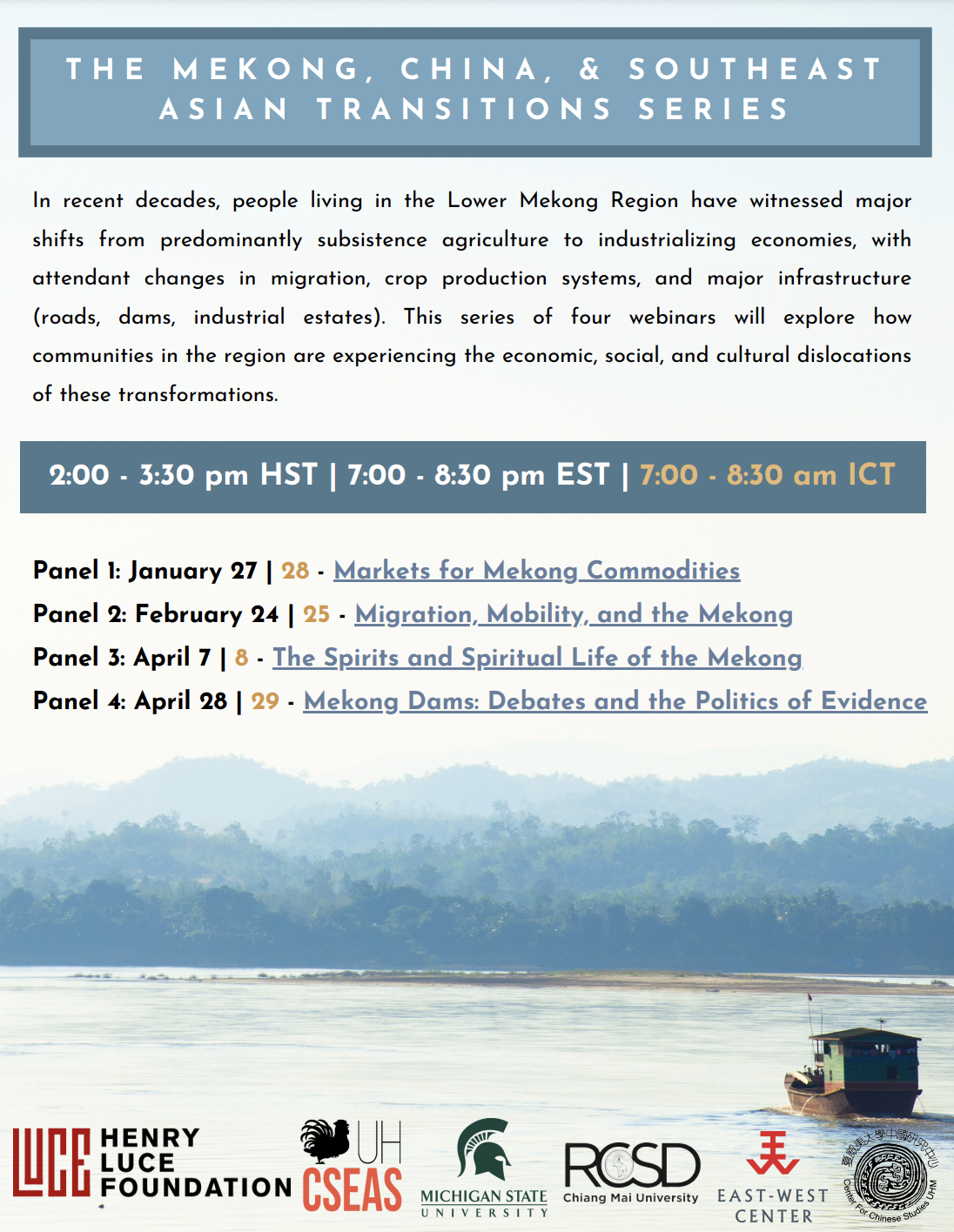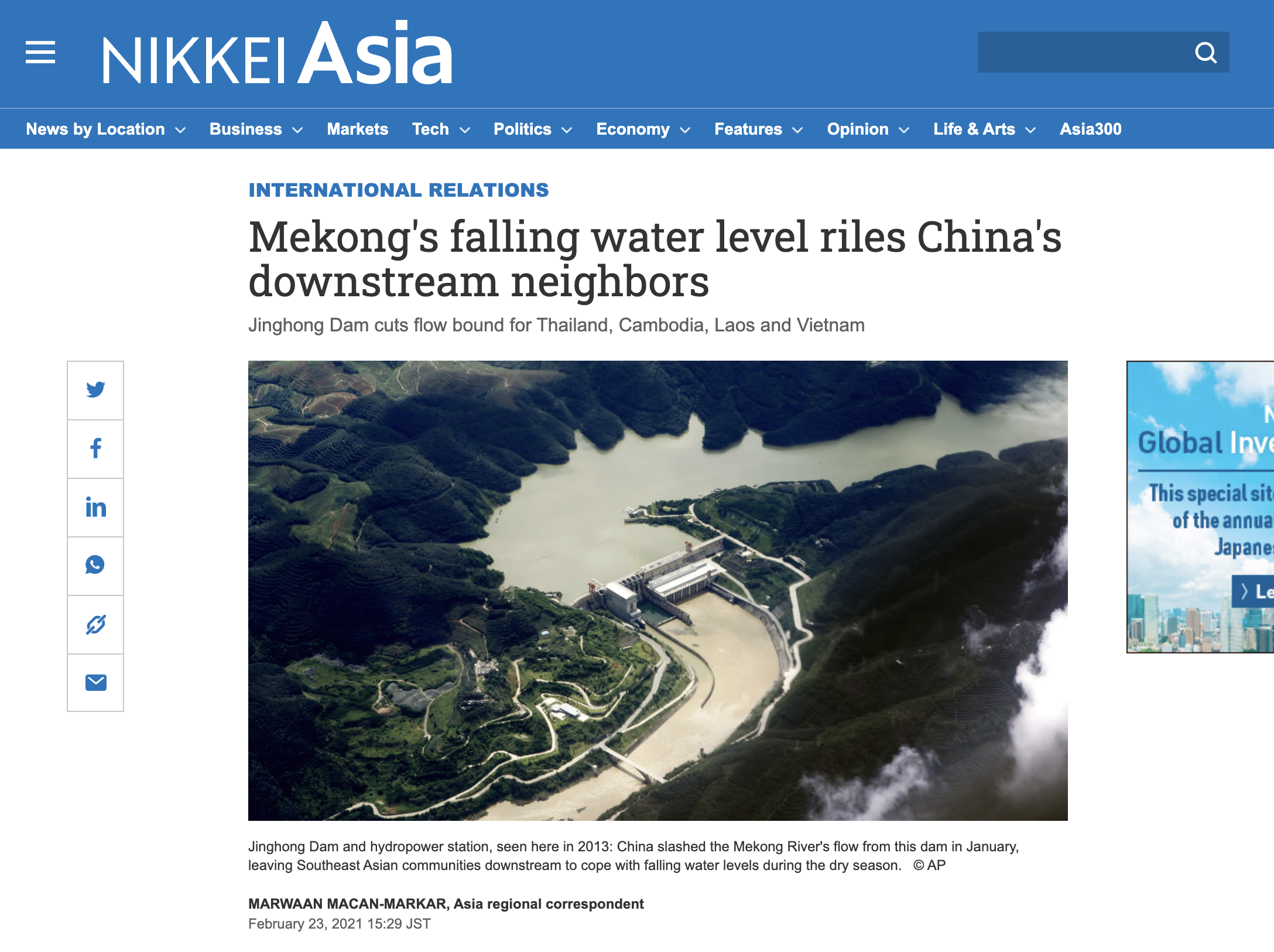Session organized at the 13th International Conference on Thai Studies
"Globalized Thailand?" Connectivity, Conflict, and Conundrums of Thai Studies
15:15-16:45, 16th July 2017, Chiang Mai International Exhibition and Convention Center
Session convened by the Center for Social Development Studies, Faculty of Political Science, Chulalongkorn University
Thailand’s companies have become major investors in neighboring countries, including in agribusiness, hydropower, mining and various forms of industry. Thailand’s companies are backed by government policy, and typically financed by Thai commercial banks as well as, sometimes, Thailand’s Export Import Bank (Thai Exim). Thailand’s regional investment has furthermore been facilitated by various regional economic integration programs, including the Asian Development Bank’s Greater Mekong Subregion Program and more recently the ASEAN Economic Community. As one of the major economies of mainland Southeast Asia, Thailand has sought to positioned itself as central to economic regionalization. Given that Thailand itself is embedded within a wider global network of production, its companies’ investment in neighboring countries’ resource extraction and commodity production can also tied to a wider global political economy.
Whilst it seems that investment, commodities, goods and natural resources flow readily across borders, the same cannot be said of access to justice. In this panel, empirical case studies will be presented of Thailand’s cross-border investments that have in the process resulted in environmental and social harms, and in some cases violated human rights. The panel explores the various processes and arenas that have emerged as communities and civil society have sought redress and access to justice. These arenas have included in the national courts of the project host country, but also through various formal and informal cross-border processes that link to Thailand, including via Thailand’s National Human Rights Commission (TNHRC), and in one example a case ruled upon by Thailand’s administrative court. Meanwhile, a report of the TNHRC on the Dawei Special Economic Zone in Myanmar led to a Thai Ministry of Foreign Affairs recommendation in March 2016 that the government should set up a mechanism for the United Nations Guiding Principles on Business and Human Rights for Thai companies investing overseas. Thus, a wider array of international norms is also brought into play, reflecting the legal pluralism that nowadays governs cross-border investments. This also brings into focus a question of the extra-territorial obligations of Thailand with regard to the investment of Thai companies.
This panel will critically evaluate Thailand’s investment role in the region through the lens of transnational social and environmental justice. Through empirical case studies on agribusiness, hydropower and special economic zones, the political economy of these investments will be explored in order to understand the production of injustice and human rights violations. The papers will ask: what are the roles, opportunities and challenges for public interest law, national/ regional human rights institutions, other transnational soft law mechanisms, and civil society to protect and promote human rights on Thailand’s investments?
- Paper 1: Accountability Beyond the State: Extra territorial obligations in the case of the Koh Kong Sugar Industry Concession, Cambodia by Michelle D’cruz
- Paper 2: Redressing transboundary environmental injustice at the Dawei Special Economic Zone and Roadlink Project by Naruemon Thabchumpon
- Paper 3: Arenas of Water Justice on Transboundary Rivers: Human Rights and Hydropower Dams on the Salween and Mekong Rivers by Carl Middleton
Discussant: Walden Bello.
Chair: Daniel King
Abstracts can be downloaded here (see page 7; session 53). Conference details are available here.













